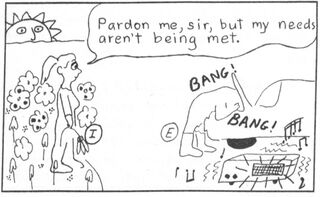
Introversion
How to Get Along With an Introvert
Hint: Be gentle and respect their need for solitude.
Posted January 19, 2016 Reviewed by Ekua Hagan

Sometimes extraverts, and even other introverts, feel awkward around quiet or sensitive introverts. “Must we always restrain ourselves in order to not offend?” they might ask. We all want to feel free to be ourselves, but relationships run more smoothly when we’re aware of one another’s needs and sensitivities. The following suggestions from “The Happy Introvert” are intended for both introverts and extraverts when relating to introverts:
- Ask if now is a good time to talk instead of taking it for granted that introverts want to have a conversation.
- Unless you ask some clarifying questions, you often can’t tell whether introverts are worried about something, involved in their own thoughts, or want to be left alone.
- Help introverts feel relaxed and safe, and show an interest in their world.
- Treat introverts gently — loud or dramatic expressions of emotion may frighten them. Your point of view will come across better through gentle persistence than if you come on strong or put them on the spot.
- If pacing is a problem, think of creative solutions like Elaine Chernoff, an extravert, did: “I used to call introverted Bob passive-aggressive for keeping me waiting so long for a response while he looked around and ruminated about what he was thinking as if I wasn’t there. But I realized he wasn’t trying to ‘get’ me, so I would have him follow me into whatever activity I was doing while he considered and finally came out with a response. This worked well for both of us.”
- When introverts opt for privacy, remember this goes along with their nature and is not necessarily a rejection of you. For example, Anthony Hopkins, an introverted actor, likes to socialize occasionally but feels his main non-acting activities (playing the piano, composing music, and taking road trips) would be less pleasurable with other people along. “Most of the time,” he told an interviewer, “I am enough.”
- “One’s company, two’s a crowd." – Oscar Levant in An American in Paris.
- Respect introverted friends’ and family members’ wishes if they prefer to be alone in times of stress or sadness. Anthony Storr notes, “In a culture in which interpersonal relationships are generally considered to provide the answer to every form of distress, it is sometimes difficult to persuade well-meaning helpers that solitude can be as therapeutic as emotional support.”
- If you feel let down because your introvert isn’t expressive enough, pay more attention to the words than to their delivery. Multiply your introverted partner’s expressed emotions by 10.
- Look for nonverbal signs of affection. Introverts are sometimes more comfortable expressing their feelings in writing or by their actions than through speaking.
- If your introverted friends or relatives go off to watch from the sidelines alone, don’t assume they’re unhappy.
- Invite introverts to join in, but don’t push them.
- Question the adjectives and definitions you use for introverts: Instead of passive, perhaps they’re shy and gentle. Instead of antisocial, perhaps their main interests don’t always involve other people. Instead of self-centered or narcissistic, perhaps they have satisfying inner lives.
- Let introverts know you appreciate them for being their own person.
- Remember neurological differences underlie introvert-extravert conflicts. Introverts have naturally busy minds, sometimes referred to as inner wakefulness, and are easily overwhelmed by sensory stimuli. Extraverts become unpleasantly restless with too little stimulation, so they often seek action.
- Since our culture celebrates extraversion much of the time, extol the virtues of introversion as well.
Order my book, The Happy Introvert, and read reviews on it here.

